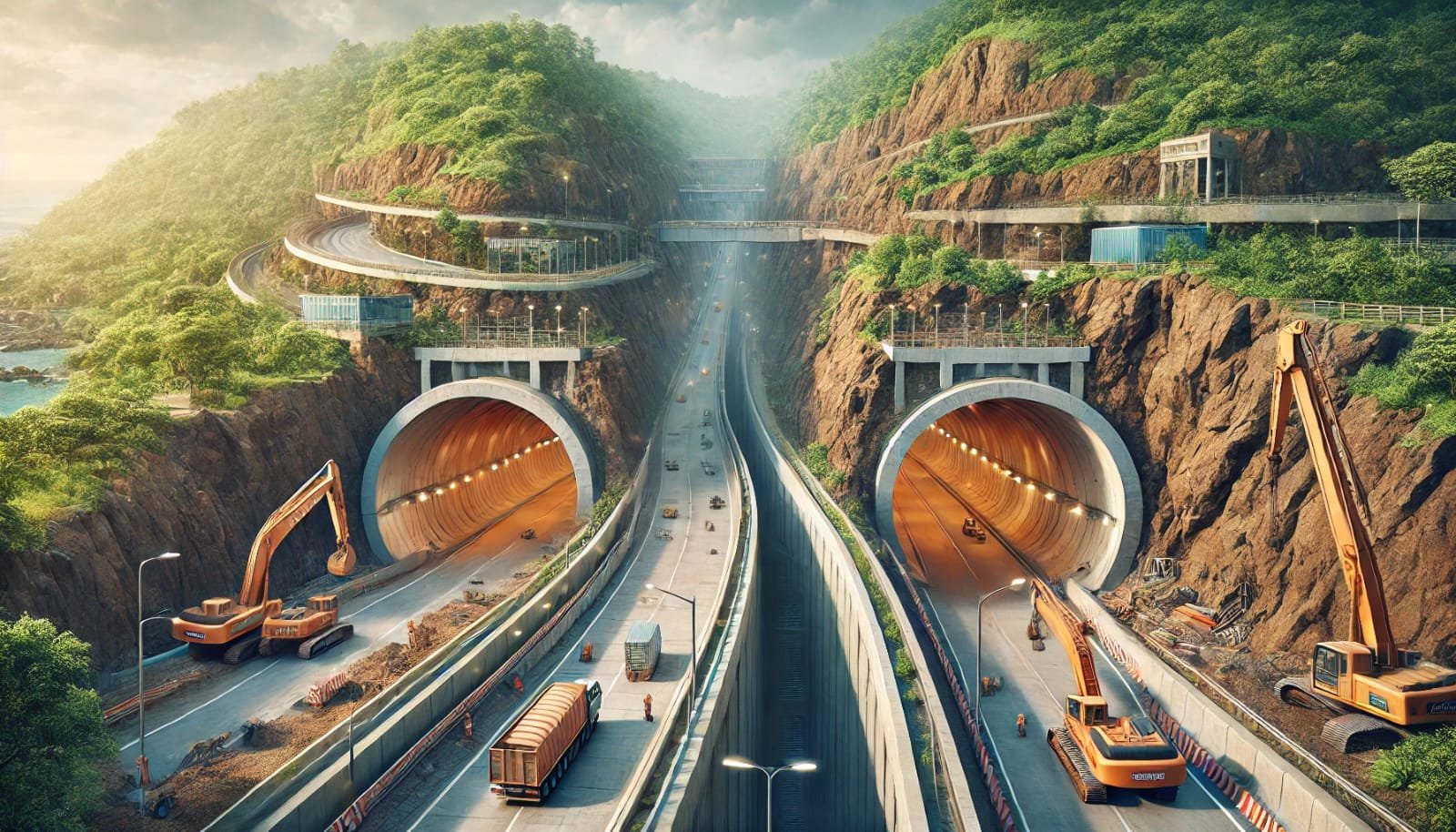The Thane-Borivli twin tunnel project, a major infrastructure endeavour set to commence in the coming months, promises to reshape travel in Mumbai by significantly reducing journey times and easing road congestion. However, the project will also involve substantial environmental and logistical considerations, particularly concerning the disposal of a massive volume of excavated soil. Scheduled to begin shortly, the project will involve the excavation of approximately 3.5 million cubic metres of soil, a volume equivalent to that which could be transported by about 1,40,000 large trucks.
The Mumbai Metropolitan Region Development Authority (MMRDA) has outlined plans for three proposed dumping sites—located near Mankoli, Kalher, and Ranjnoli—to manage this substantial soil output. Initially, 30,000 cubic metres of this soil will be used for constructing the casting yard at Kasarvadavli, with all necessary regulatory approvals to be secured before disposal begins. To facilitate the removal of the full volume of excavated soil, an extensive fleet of trucks will be deployed. Each truck will carry 25 cubic metres of soil, necessitating 1,40,000 trips to transport the entire 3.5 million cubic metres.
For the initial 30,000 cubic metres, approximately 1,200 truck trips will be required. The tunnel project is divided into three distinct packages: Package 1 involves a 5.75-km tunnel on the Borivli side, Package 2 includes a 6.05-km tunnel on the Thane side, and Package 3 encompasses the installation of essential systems, including electrical, mechanical, and fire safety measures. The total length of the twin tunnels will be 11.8 km, featuring an outer diameter of 13.05 metres, accommodating two lanes per tunnel plus an emergency lane, and incorporating cross passages every 300 metres.
The projected benefits of the tunnel are significant. It will shorten the travel distance between Thane and Borivli by 12 km and reduce travel time by approximately one hour. This efficiency gain is expected to translate into substantial fuel savings and a reduction in congestion on the Ghodbunder Road. With an estimated cost of over ₹14,400 crore, the project is poised to have a profound impact on regional travel. The twin tunnels, each spanning 10.25 km, will traverse beneath the Sanjay Gandhi National Park, connecting Tikuji-Ni-Wadi in Thane to the Western Express Highway in Borivli. To mitigate environmental impact, the project will utilise a Tunnel Boring Machine (TBM) designed to minimise disruption to the park’s biodiversity. The entire project is anticipated to be completed within five and a half years from the awarding of the tender.
Upon completion, the tunnels will support speeds of up to 80 km/h, potentially saving around 40 to 45 minutes of travel time and cutting fuel consumption by an estimated 10.5 lakh metric tonnes. Additionally, the project is expected to contribute to a 36% reduction in carbon dioxide emissions. Safety and air quality within the tunnels will be managed through the installation of cross passages, smoke detectors, and jet fans.


